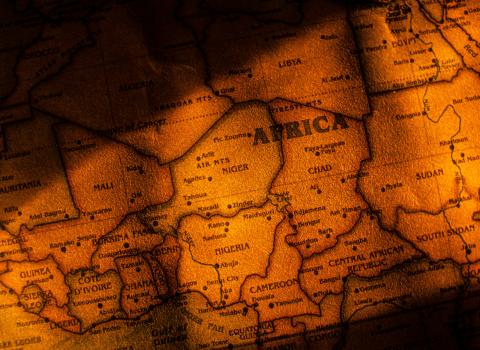EU Research Commissioner Carlos Moedas sees new opportunities for science and investment in Europe following the dramatic research cuts proposed by US President Donald Trump last week.
Trump’s first budget took direct aim at basic scientific and medical research, proposing to eliminate the star US energy programme, ARPA-E, and make huge reductions to the National Institutes of Health, which fund thousands of researchers working on cancer and other diseases.
Asked on Tuesday if these cuts could benefit Europe’s standing in science, Moedas responded that it made the continent a more attractive destination for researchers.
“We have an amazing opportunity today of still being the place where we believe in fundamental science; there is opportunity when I see that other parts of the world are more sceptical about it. This is the moment that – if I was an investor – I would double my bet [on] Europe,” said Moedas.
Moedas’ comments came during a press conference marking the 10th birthday of the European Research Council (ERC). The bullish rhetoric was underscored by Polish member of the European Parliament Jerzy Buzek, who said the next EU research programme, set to start in 2021, “shouldn’t be lower than €100 billion”, meaning science spending in Brussels should increase by at least €20 billion.
The Portuguese Commissioner prefaced his remarks by saying he was withholding specific judgement on the actions of the Trump administration. “I don’t compare myself to the other parts of the world,” he said.
But he pointed out that Europe has ramped up its research spending, at a time when support for science elsewhere is flagging.
“When you look at the vision of European politicians who at the time decided to increase the budget for science in Horizon 2020, I think that is amazing compared to other parts of the world,” Moedas added.
The result of the spending increase is that the ERC has become one of the “crown jewels” of basic research in the world, and one of the EU’s “greatest stories”, Moedas added.
The agency, which has invested €12 billion into 7,000 science projects since 2007, has provided inspiration to 15 countries looking to set up their own basic research agency. A paper published by British scientists two weeks ago called on the UK government to emulate the agency as a way to keep British science competitive after Brexit.
“We’ve created a system where the scientists tell politicians what to fund, not the other way around,” said Moedas.
One of the scientists to receive funding from the ERC is 2016 Nobel laureate Bernard Feringa, who discovered tiny little nano-robots which could one day deliver drugs or detect cancerous cells in the human body.
He would like to see the agency grow bigger and receive more funding. “Please, strengthen this programme; it will shape our society in the future,” he said.
Referring to the time in his career when he worked with the Portuguese government, Moedas said he would inevitably get asked about his country’s biggest football star, Cristiano Ronaldo, when he travelled abroad.
Since becoming an EU Commissioner, the question has changed. “Now I get asked about the ERC wherever I go in the world,” he said.





 A unique international forum for public research organisations and companies to connect their external engagement with strategic interests around their R&D system.
A unique international forum for public research organisations and companies to connect their external engagement with strategic interests around their R&D system.